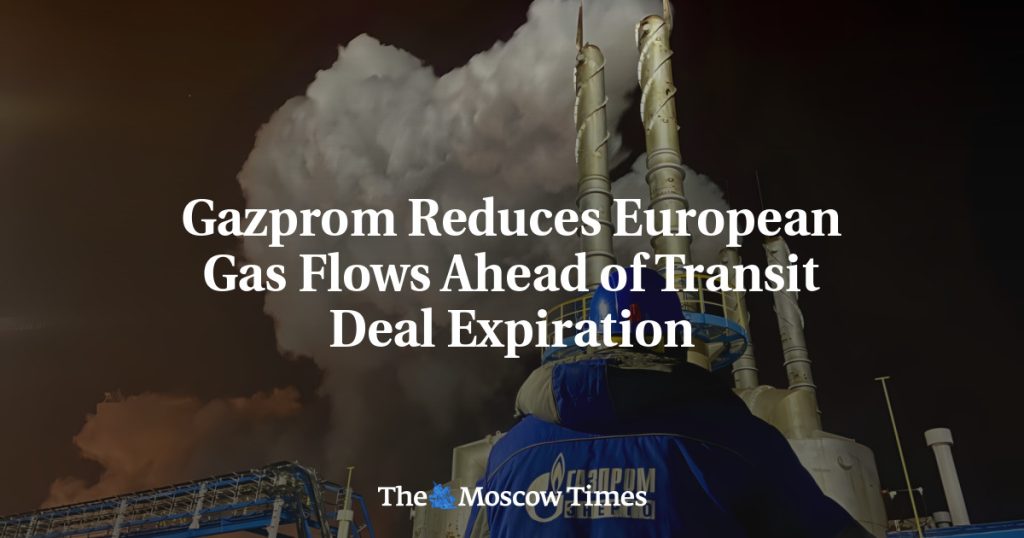Gazprom has announced a reduction in gas flow to Europe via Ukraine as the transit agreement between the two countries is set to expire. The energy giant plans to pump 37.2 million cubic meters of gas on the last day of the agreement, down from 42.4 million cubic meters the previous day. The expiration of the five-year transit agreement is expected to result in zero gas flow at midnight. Russia’s market share in Europe has decreased significantly to near zero since its invasion of Ukraine in 2022, leading the EU to seek alternative suppliers such as Norway, the United States, and Qatar. Gazprom’s reported $7 billion net loss in 2023, its first annual deficit since 1999, will result in the company forgoing nearly $5 billion in annual sales from the Ukrainian route, while Ukraine will lose an estimated $800 million in annual transit fees.
Moldova, an EU candidate country, is amongst those expected to be impacted by the end of the transit agreement. The country declared a state of emergency in anticipation of the disruption, even though it has reduced its reliance on Russian energy. However, the breakaway region of Transnistria continues to receive subsidized Russian gas, leading to tensions. Moldovan Prime Minister Dorin Recean has accused Moscow of engaging in “energy blackmail.” While Gazprom will continue to supply gas to Hungary via the TurkStream pipeline, Slovakia, another key transit country, may encounter significant losses as flows from Ukraine come to a halt. Slovak Prime Minister Robert Fico visited Moscow to discuss gas shipments with President Vladimir Putin earlier in the month in light of these developments.
The breakdown of the Ukraine route highlights the diminishing influence of Russia in Europe’s energy market, as Gazprom’s future prospects now depend on expanding to the Asian market. Despite efforts to find new buyers in China and India, Gazprom has not been able to offset losses in Europe. The collapse of Russia’s dominance in Europe’s energy sector has been characterized by the shift towards alternative suppliers in the region, leaving Gazprom with the challenge of adapting to the new market dynamics. The energy giant’s pivot to Asia is crucial for its future sustainability, but the success of this strategy remains uncertain.
The tension surrounding the expiration of the transit agreement and the shift in Europe’s energy landscape have raised concerns in countries like Moldova, where the disruption in gas supply could have significant consequences. The state of emergency declared in Moldova is an indication of the seriousness of the situation and the potential impact on the country’s energy security. The reliance on Russian gas in breakaway regions like Transnistria adds a layer of complexity to the geopolitical dynamics at play, further complicating the energy situation in the region. The decisions taken by Gazprom and the response from European countries will shape the future of the energy market in the region.
As Gazprom navigates the changing energy landscape in Europe and the challenges posed by the expiration of the transit agreement with Ukraine, the company faces a pivotal moment in its history. The geopolitical implications of these developments extend beyond the energy sector, impacting the relationships between Russia, Ukraine, and European countries. The shift towards alternative energy suppliers reflects a broader trend in the global energy market towards diversification and sustainability. As Gazprom seeks to pivot to Asia and expand its market presence in countries like China and India, the success of this strategy will determine the company’s ability to adapt to the changing dynamics of the energy industry. The expiration of the transit agreement marks a significant turning point for Gazprom and highlights the need for the company to innovate and evolve in response to the evolving energy landscape.















